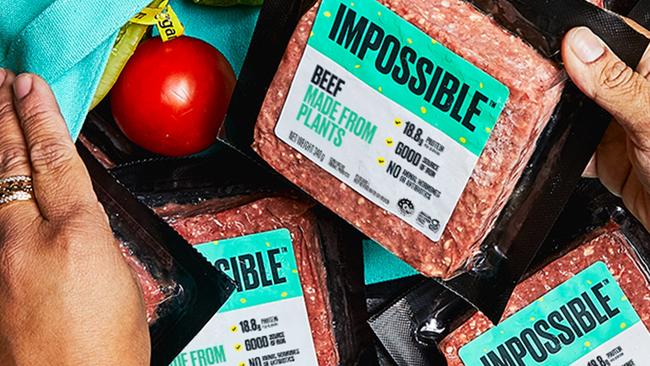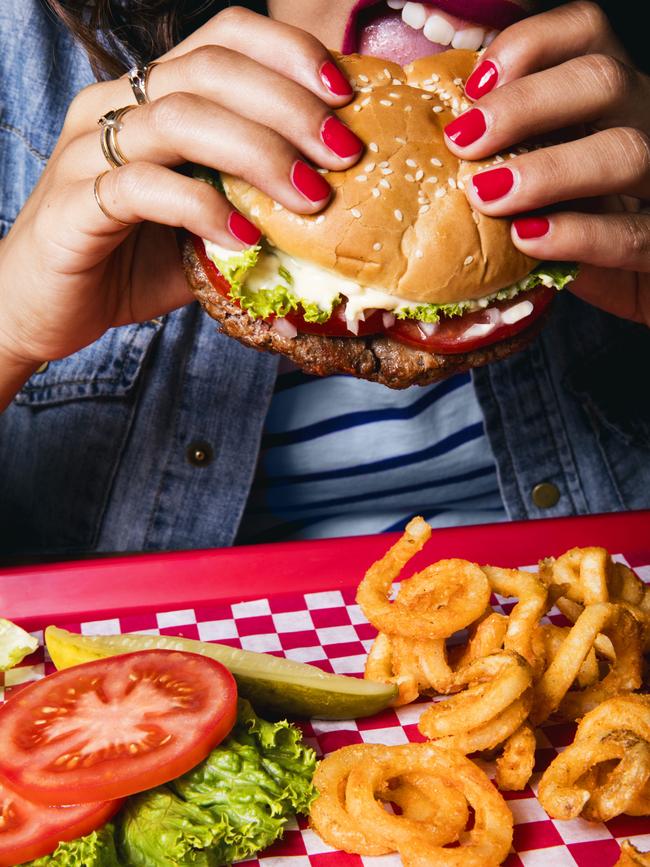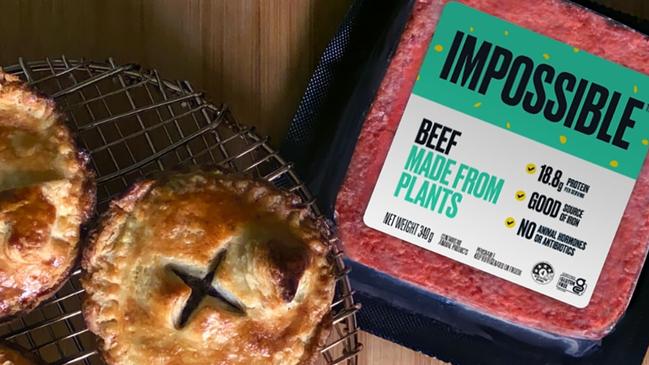
Preventing the planet from glowing orange and bursting into flames at some distant point in the future now runs a poor second to the horrors of high cholesterol, which is an interesting take on priorities.
“We’re not leading with the planet because not enough people care,” Peter McGuinness, CEO of Impossible, one of world’s largest plant-based food manufacturing companies, told Reuters last month. “It’s the reality now.”
Late last year, at an advertising conference, McGuinness said of Impossible’s marketing: “There was a wokeness to it, there was a bi-coastalness to it, there was an academia to it … and there was an elitism to it – and that pissed most of America off.”
Big Plant in the US is represented by Impossible and Beyond Meat. They have been copping a belting in the marketplace. In 2022, plant-based meat sales fell for the first time in the US, a 9 per cent decline by volume in total. The largest company, Beyond Meat, a supplier to McDonald’s for their ill-fated McPlant, saw its stock price sink by almost half in 2022 from its peak in 2020. Last year, sales were down 20 per cent. Impossible has not been quite as shaky, but it was obliged to cut a sixth of its workforce last year.
Apparently, the problem with eating plant-based non-meat, zero-cholesterol products isn’t because they taste terrible, somewhere between gnawing on bark while chewing on a hairbrush. It transpires plant-based non-meat meat manufacturers have been doing it all wrong, pitching to veggos and vegans with wrappers smothered in green. Now they’re pushing their wares to red-blooded carnivores with scarlet wrapping, dripping with fake blood.

My daughter had a brief flirtation with veganism several years ago. It played havoc with the grocery bill and took me to parts of the supermarket that I never knew existed and, now that the fad has passed, will never darken again. A month or so later, she was found in possession of a KFC original recipe burger – aka the dirty bird – and the jig was up. But never on her lists of obscure vegan foodstuffs did I see a request for any processed plant-based products.
Prior to the pandemic, there had been a rise in sales of plant-based foods as the industry expanded and distribution deals were arranged with some of the biggest fast-food and restaurant chains in the US. Burger King had the Impossible Whopper filled with all the pea protein you could ever want or need. McDonald’s went to all soy patties, lettuce, cheese, pickles, special sauce on a sesame seed bun.
Tennessee-based southern home cooking chain Cracker Barrel, with 687 locations in the US offered a plant-based sausage on their breakfast menu and it went down with its customers like a serving of broken glass with a side of barbed wire.
The publishable responses on the company’s Facebook pages were dripping in outrage. “I just lost respect for a once great Tennessee company.” “Cracker Barrel used to be so good, we looked forward to eating in them but not anymore.” Others panned the chain for being “woke”.
Go woke, go broke, you might think. For companies like Impossible and Beyond Meat, it’s more about a bid to extricate themselves from a culture war brouhaha of which they found themselves becoming economic roadkill.
The conspiracy universe lit up when Tucker Carlson interviewed a far-right food conspiracist, Raw Egg Nationalist, who claimed the new world government was not just starving the world’s population of meat but rendering carnivorous boofy blokes into woke pantywaists known as soy boys.
At a 2020 rally in Des Moines, Iowa, then president Donald Trump threw his weight behind the anti-meat conspiracy in a way that left many scratching their vegan pan-fried noodles. “They want to kill our cows! You know why, right? … That means you’re next.”
Clearly the 45th POTUS is not a farmer. Where do you think those Trump steaks come from, Donald? Bovine palliative care?

And while Trump hints at New World Order cannibalism, the enemy of the steak is not the frowning disapproval of Hillary Clinton or Bill Gates but a product that looks like a steak but isn’t, made by a company with the unfortunate name of Chunk Foods.
In Australia, levels of plant-based food consumption are trickier to figure. Australians are eating less red meat than they were during the pandemic. A Griffith University study in 2023 found that almost a third of Australians had reduced their meat consumption. Of these, 45.6 per cent said they had nibbled at plant-based products at some stage or other.
There are many reasons for this, mostly health. I have had that conversation with my doctor about eating red meat. It’s the fat content that is the problem but there are other economic factors the study barely touched on, including that a considerable number of people who were on elevated JobSeeker payments found themselves able to afford fresh foods, including red meat, for the first time in a long time. Now it’s back to about $300 a week below the poverty line, it’s beyond the means of a large slab of the population.
But was the push for plant-based foods ever about saving the planet? Well, no. A quick look at the contents of a single plant-based hamburger patty shows a witch’s brew of substances including water, plant protein (soy), sunflower oil, coconut oil, thickener, glutamic acid, natural flavours, cultured dextrose, modified starch, yeast extract, soy leghemoglobin (genetically modified), salt, antioxidant, vitamins and minerals, niacin, thiamine hydrochloride, pyridoxine hydrochloride, riboflavin and vitamin B12. Snap, crackle and pop. It’s the methylcellulose that makes it good.
Plant-based foods might not be whipped up in a grim factory with creaking smoke stack chimneys pouring toxins into the atmosphere but it’s a damned sight more complex and more expensive than the simpler, tastier business of consuming a cow.








Plant-based food manufacturers have surrendered their green credentials and acknowledged that saving the planet one vegan at a time isn’t working.